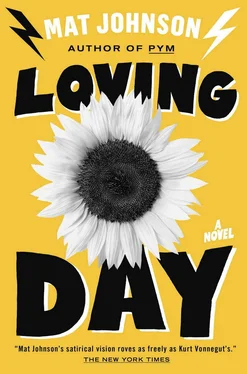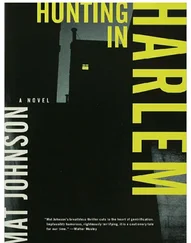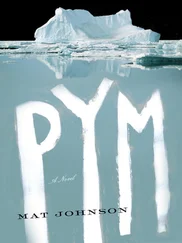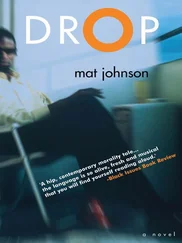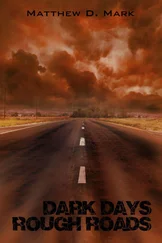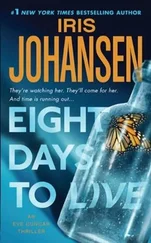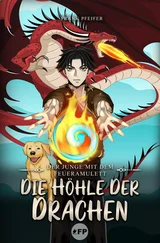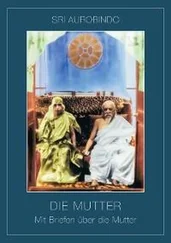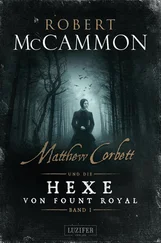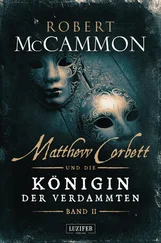Roslyn, who just stares at me. Standing in her doorway. Nothing but a long T-shirt on and a sleeping bonnet. Standing there like a door herself, a closed one. In a backward, inside-out T-shirt with the tag showing. Who won’t say a damn thing more. And I win. I win. Because she lifts up a finger and points down to the far end of the property, wags her head in defeat, and goes back inside.
I walk in the direction noted. As far into the dark as the compound allows. Along the line of the most rusted of the property’s fence, below where the slope of the hill hits its sharpest downturn, where the angle hides it from the rest of the property. I am coming for her. I am coming for him too, if he’s here. I’m coming.
I see a light. Not the steady drone of the streetlight. A spark. A flicker. Candlelight. Against the farthest corner of the yard. I see her, on the ground, before it. I start running, trying to get all the way before she can escape, am at full momentum again when I can already tell it’s not the white woman.
“What the hell is your problem?” comes from Sunita Habersham when I reach her. She’s on her knees. There’s not one light before her, but three. Bodega candles. Leaning up against the middle iron rods of the border. Their light flickers off her face, and the intimacy of her posture makes me feel the embarrassment as it takes over.
“Did you see a white lady?” I ask, because I can’t bring myself to ask what she’s doing, what this is, what is going on with her. Or why she’s frantically gathering up the pictures that I now see are lying on the ground before her, pulling them into a loose pile and sticking them in a cardboard box. I don’t look at them, don’t even want to guess what they are. I want to run past her, continue crackhead-hunting, pretend this is normal behavior on both our parts.
“I’m not crazy,” Sun insists.
“I didn’t say you were crazy. I wasn’t even thinking that.” And I wasn’t, because I hadn’t even gotten that far.
“It’s a ritual. For closure.” I look down at my ankle, which I realize is hot. Because it’s burning. I hop from the pain, see something fall off my pant leg. I lift it up, hold the remains of a photo, the image of a man’s flannel shirt obscured by a destructive line of ember that glows in the darkness.
“Wait — What the hell? Are you burning these?”
“They’re just prints! It’s a releasing ceremony, okay?”
“So this is where you’ve been going? All those times at night when you disappear?” There is actually relief in my voice, and that leads to a little levity, which I understand immediately Sun takes as mocking.
“Not every night. Just some anniversaries.”
“You’re out here, making an alter?” I hand her the singed image. Sun takes it, blows on it gently, like suddenly it is something to take great care of.
“Roslyn says my problem, with getting over Zeke, isn’t that I never got a note. My problem’s all the other reminders he left behind. I mean, that’s the idea. I don’t know. Roslyn suggested it.”
“Oh, okay. Roslyn suggested it.” I don’t intend for there to be any sarcasm in my voice. I don’t even think there is; Sun just borrows my cynicism from earlier conversations and applies it here. It’s enough to break the spell of her defensiveness, put her into an opposite mode.
“What the hell are you doing out here?”
“Tal would like your support as she gets her Sesa tattooed,” I say. It just comes out of my mouth, overriding the more problematic subject of fake-ghost-hunting. I wasn’t even thinking about my original motivation; the sentence was just sitting there, waiting to escape, waiting for the moment when my brain shut down. “I let her get it. Since I forgot her birthday,” I add, when the first explanation clearly doesn’t seem good enough.
“Tal’s birthday isn’t until next week,” Sunita Habersham tells me, fastening up her box with rubber bands. “Next Thursday,” she says before blowing out the candles. Sun saves “She played you” for when we’re walking back.
IN FOUR PIECES, it will go, the house that Loudin built. The structural mover assures me that they can do the job, that the initial deconstruction shouldn’t take more than a week at most, that the restorative work to hide the surgical cuts shouldn’t take more than a few months. While he talks, mistaking me for someone who cares, his men measure and take notes and hold little detectors to the walls to see where the beams are, spraying orange paint in response to their finds. They can do the cuts right down the line of the wood. When it’s reassembled, you won’t be able to tell the difference, the project manager tells me. You could take this halfway around the world and it would hold. Houses like this aren’t built anymore.
The call from Tosha interrupts this, and I’m still not ready to take it, but I don’t want to talk about my father’s house anymore.
I answer with, “I’m sorry.”
“It’s too late for sorry, Warren. I’m just calling to tell you, I will be there. I watched it, and I’m not letting this get any further. And not just me, I’m not the only one who thinks this has gone too far. We will be there. The community. With our own press, our own cameras. We’re not just going to let this divisive bullshit happen. I still care about you, but I can’t believe you had the nerve to go on TV talking about jungle-fever ghosts. And in that dirty ass T-shirt.”
I’m asking her what she’s talking about. I’m saying “Wait, talk to me,” before I realize she’s hung up.
—
The anchors’ lead-in is “Spirits of Philadelphia,” and a bunch of prattle and toothy grins, and even though it’s just a clip you can tell it’s the last segment of a slow news night.
“Why didn’t you tell me this came on?”
“I didn’t have time,” Tal says, which is a lie. She must have known it would be broadcast last night, which is why she has the show’s site bookmarked already, and why she didn’t say a word through breakfast. So I brace myself.
The first shot is Loudin, in the daylight. It’s taken from the street. Then the camera takes a stroll through Halfie Heights, and the voice-over describes it as “a new commune exclusively for black people who are half-white.” Spider’s Airstream: “They live in makeshift motor homes for now, but they insist they’re here to stay, and that they are the future.” Roslyn comes on. She’s sitting on the front porch of my father’s house like she already owns it. “We offer a sanctuary for people of both African and European ancestry to move beyond the cold war of black and white in America, and come to peace with themselves.”
Tal, who hangs over my shoulder, straightens and steps back now. So I know it’s coming.
“But not all is peaceful at Loudin Mansion,” the voice says in a campy fifties horror-movie style. Same shot of the house, but now a filter flips the image to a black and silver negative. “Sightings of two ghosts, one female, white, and one a purportedly black male, have been reported throughout the camp.” When Tal comes on, her name appears at the bottom over the title “Property Owner/Ghost Witness.”
“They were here. I believe it was a sign. I believe it was the first interracial couple, welcoming us. Telling us the house is ours.”
The light of the camera simultaneously flattens Tal’s makeup-less face and makes the poof of her hair appear wild and expansive. My daughter looks as crazy as this sounds. They show the clip of her bathroom video; a link to the YouTube page where it’s hosted even pops up. It’s even grainier, filtered through the lens of television. After describing the footage, the voice says, “Not everyone agrees about who’s doing the haunting.”
Читать дальше
